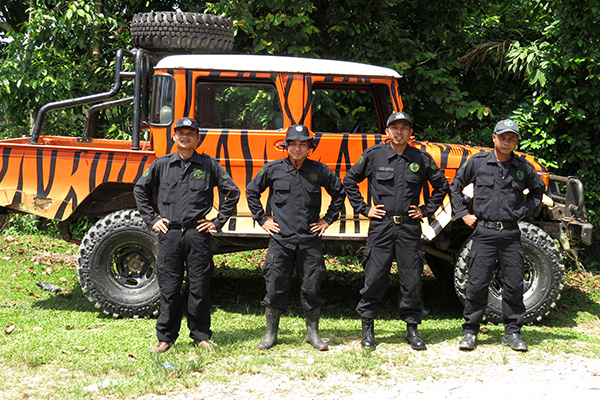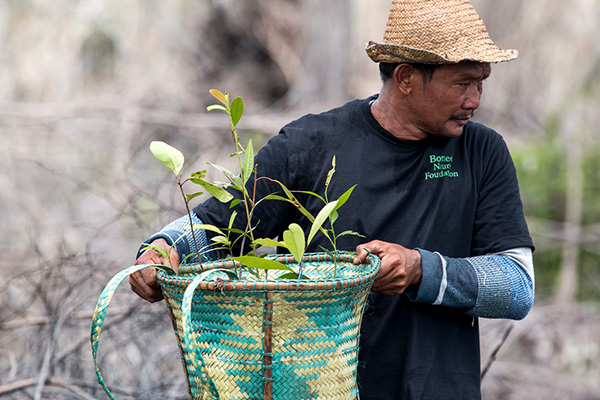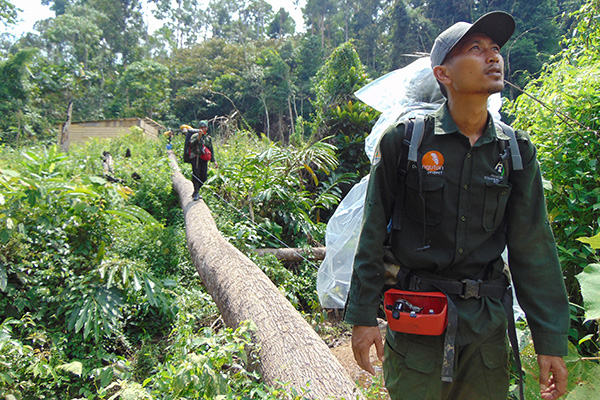Illegal plantations and encroachment are a huge issue in elephant forest habitat, including protected areas such as the Gunung Leuser Ecosystem in Sumatra. The International Elephant Project supports organisations that have reclaimed illegal plantations and chopped down thousands of oil palm trees, rubber trees and other illegal crops. These areas are then secured and restored.
The International Elephant Project partners and works with many organisations that are restoring elephant habitat and creating corridors for them to travel through. Indigenous tree seedlings are grown in nurseries and then planted at restoration sites. Seedlings are monitored and cared for after planting and weeds must be removed to allow the seedlings to grow.
Forest restoration projects also provide a wonderful opportunity to educate and involve the local community in understanding the need to sustain and protect the forests from illegal encroachment. In addition, local people participate in useful training sessions in support of the restoration work, including tree nursery development, improved planting methodology and planting maintenance. Some local people then have the opportunity for paid employment within the forest restoration programs.
Patrols are vital to protect elephant habitat and restoration sites. The presence of patrols and guard posts greatly deter illegal activities including encroachment, logging and poaching. The International Elephant Project funds patrol teams in many areas to keep important ecosystems safe. Local people are employed in these programs and given extensive training in forest survival skills, first aid, tracking elephants using telemetry equipment and drones and GPS mapping. Providing local employment in these areas encourages and educates people in the importance of protecting the forest ecosystems. It also provides an alternative income to exploiting the forest.



The International Elephant Project funds the restoration and patrol of elephant habitat through the following projects: